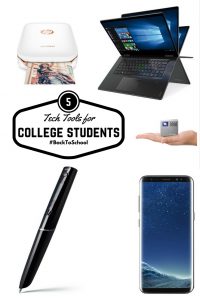Are you addicted to your smart phone? Are you reading this on your smart phone? We use our phones for pretty much everything these days, and this is especially true for people who have family who are not living in the same area, or even in the country as is the case for Caribbean people with family back home. We use our phones to track storms headed for our loved ones, and to see photos of family that we may not be able to see in person for quite a while. But when is it too much?
Recently I was on Good Morning Washington to talk about smartphone addiction and how to get “sober.” If you feel like you can’t live without the phone, you feel anxious when you don’t have it or when your battery starts to get low, or you are missing out on important moments with family and friends because you are on your phone, you may have a problem.
The phone addiction is one of the most difficult to overcome because we do everything with our phones. We have become so accustomed to being connected all of the time, the phone is often required for work, and our social lives after work. The phone is constantly notifying us that we are missing something, have missed something, or that we are about to miss something. Some people are finding that they can’t put the phone down. Not to eat, and often not even to sleep. Phone addicts feel anxious if the phone isn’t in their hand or nearby, and they don’t feel relief from that anxiety until they check their phone.
I just graduated from law school in May, and I think my real issues with the phone began when I started school. I already spent a lot of time on it because of blogging and social media, but my phone use really ramped up in school. Everyone was younger than me, and I felt like I was lost. The phone had all the information. My classmates kept each other updated on GroupMe, the world was passing me by as I was buried in books, so I checked Facebook to see what everyone was up to. I had a social media and the law class that actually required me to live tweet the class and keep up with social media above and beyond my normal use. I found myself constantly checking the phone, even though I had my sound notifications off, because I was worried about not knowing what was going on.
Then my son got really into instagram and twitter, and I see him with his head down on the phone, and I could really see myself. He was like a mirror. If one of us asked a question, we only got half answers and then he would trail off. He would drop everything if the phone made a noise. Constant checking. I’m thinking – is that what I look like?
- I don’t use my phone as my alarm clock anymore. I used to set it to wake me up, but once it was in my hand, I went straight to my favorite apps. The kids have actual alarm clocks, and I just use my internal clock that usually wakes me up around 5 or 6 am anyway.
- I uninstalled the time wasting apps. I recently got a new phone, and it didn’t have all of the apps that I had on my old phone. I found myself spending less time on the phone, and only reinstalling apps that I noticed were missing. Productivity apps like document scanners and things like that.
- I don’t keep my schedule on my phone. Having my schedule on my phone kept me constantly checking it. I started that back in law school. I went and got an old school planner – you know… paper – and kept my schedule there. For those of you who know planner addicts, you might be trading one addiction for another, but one at least allows you to sleep and interact with friends.
- Phone free meals. I don’t eat with my phone. I had to be especially mindful of that as a parent because meal time is often time that you get to share your thoughts and get the kids daily download. They want to talk to you, so you have to keep your head up, eyes off the phone, and get engaged in the conversation. It’s not like we don’t have a lot to talk about with our kids these days.
- Buying real books. I started to get books sent to my phone, and not only was I back staring at the phone, but I was constantly allowing myself to be interrupted by the notifications and alerts,so I couldn’t really enjoy the book. Having an actual physical book in my hand not only feels good, but I can turn my phone off and really allow myself to get caught up in the story.
- More quality sleep
- Better offline relationships
- More productivity
- Less anxiety
- More time to enjoy the people and things around you
Video on WJLA website: http://wjla.com/features/good-morning-washington/learn-to-break-your-smartphone-addiction
Are you a cell phone addict? Have you broken your cell phone addiction? How long have you been sober? What apps did you have to get rid of? Share your story in the comments!


